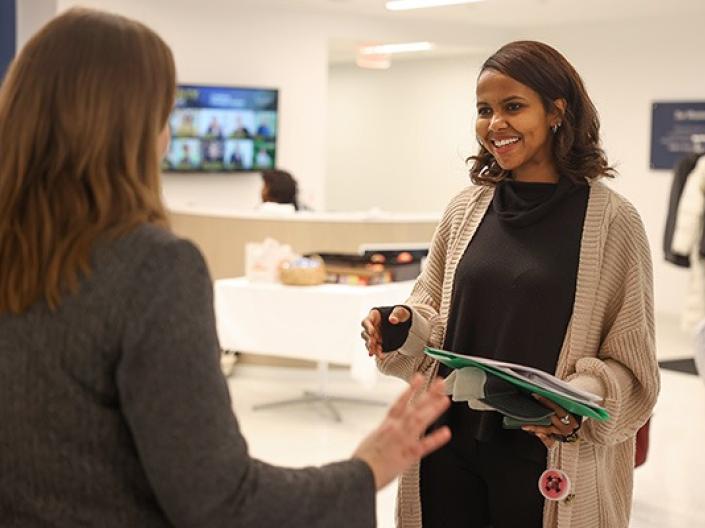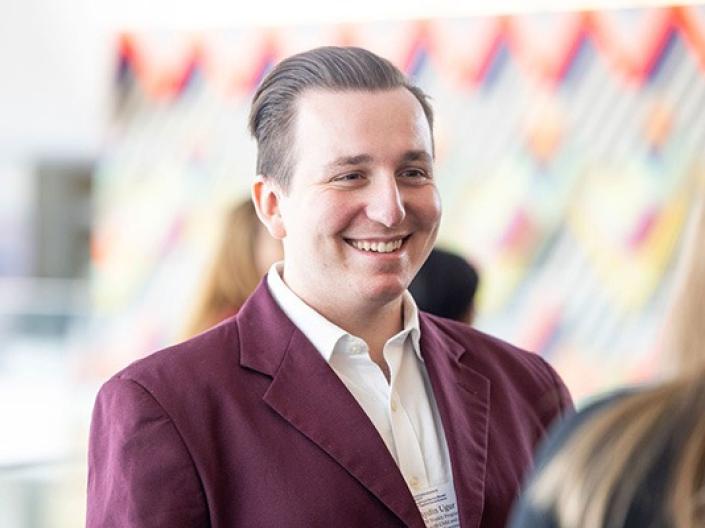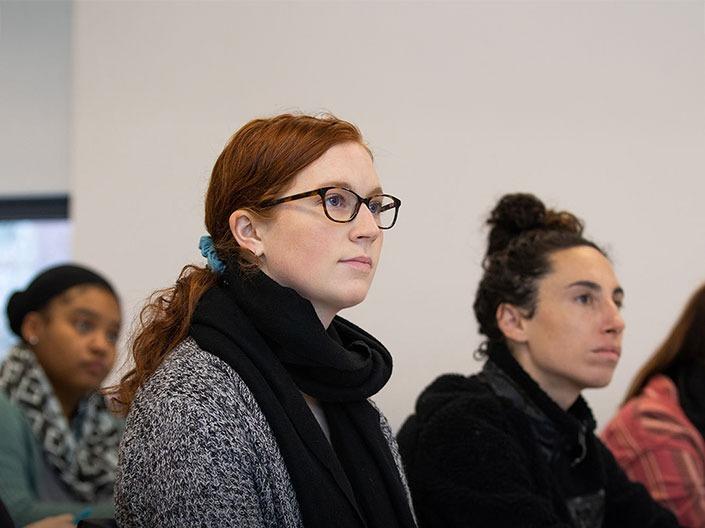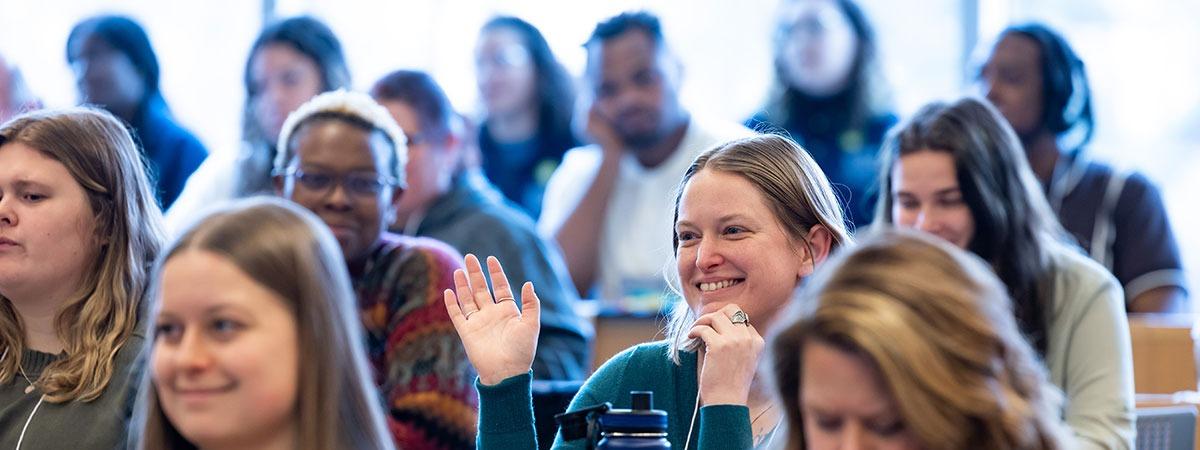Learn to Lead in Social Work
The Jack, Joseph and Morton Mandel School of Applied Social Sciences at Case Western Reserve University is ranked among the top 4% of schools of social work in the nation—and #1 in Ohio—by U.S. News & World Report, evidence of our skill in fostering effective change leaders since 1915.
Earn your Master of Social Work (MSW) at the Mandel School while surrounded by people who share your commitment for improving your communities—and the world. Our MSW program will help you build the knowledge and expertise you need to transform your passion into professional action.
Three Ways to Earn Your MSW
Learn from our world-class faculty in one of three program options, designed to meet you where you are and help you turn your commitment to fueling social change into tangible skills and a fulfilling career.
You can also combine your social work education with a dual degree in bioethics, law, nonprofit management or public health.

Our on-campus MSW combines research, theory and hands-on practice to help you tackle many of today’s complex social challenges.

Earn a degree from our top-ranked social work school from wherever you're located, while maintaining your personal and professional commitments.

Take the next step in your career with our weekend MSW program, designed to fit seamlessly into your busy schedule.
Social Work Careers
Employment of social workers is projected to grow 11% by 2028, much faster than the average for all other occupations (Bureau of Labor Statistics). Graduates of the Mandel School are eminently prepared to effect social change at all levels of society. Our alumni are employed by schools, hospitals, governments, nonprofits and NGOs, financial service companies and micro-lenders, and even professional sports teams.
With a master’s in social work, there are many career options you can pursue, including:
- Executive director of a nonprofit organization
- Hospital social worker
- Community organizer
- Mental health or substance abuse counselor
- Policy analyst
- Social science researcher
- Child and family therapist
- Lobbyist or policy developer
- Marriage and family counselor
- Foster care social worker
- Women’s health coordinator
MSW Admissions
We maintain the same admission standards across all three of our MSW program formats. Applicants must hold a bachelor’s degree from an accredited college or university with a GPA of 2.7 or higher. No GRE or application fee are required.
Learn About the Admissions Process for Your Format
MSW Curriculum
39–60 Credit Hours | Advanced Standing Available
Our MSW curriculum is the first competency-based curriculum approved by the Council on Social Work Education (CSWE). It combines research, theory and field education to prepare you for clinical and macro-level practice—no matter which program format you pursue.
We created the Ability-Based Learning Environment (ABLE), a set of standards for social work education, and our program emphasizes proficiency in the eight abilities. The MSW curriculum fulfills the educational requirements for licensure in all 50 states.
At the Mandel School, you will learn how to:
- identify as a reflective professional social worker
- advocate for social, economic and environmental justice
- apply social work practice methods
- uphold social work values and ethics
- integrate cultural, economic and global diversity in your work
- think critically about theory and research knowledge
- communicate effectively
- develop as a social work leader
MSW Paths of Study
We offer advanced elective coursework on a range of topics to prepare you for a range of social work careers. All program paths can be completed across all of our formats.
- Adult Behavioral Health
- Child and Family Practice
- Community Practice for Social Change
- Trauma and Healing
On-campus MSW students can also pursue dual-degree options or certificate programs.


